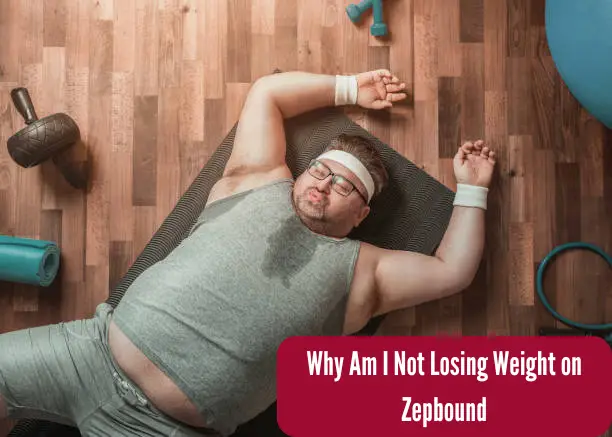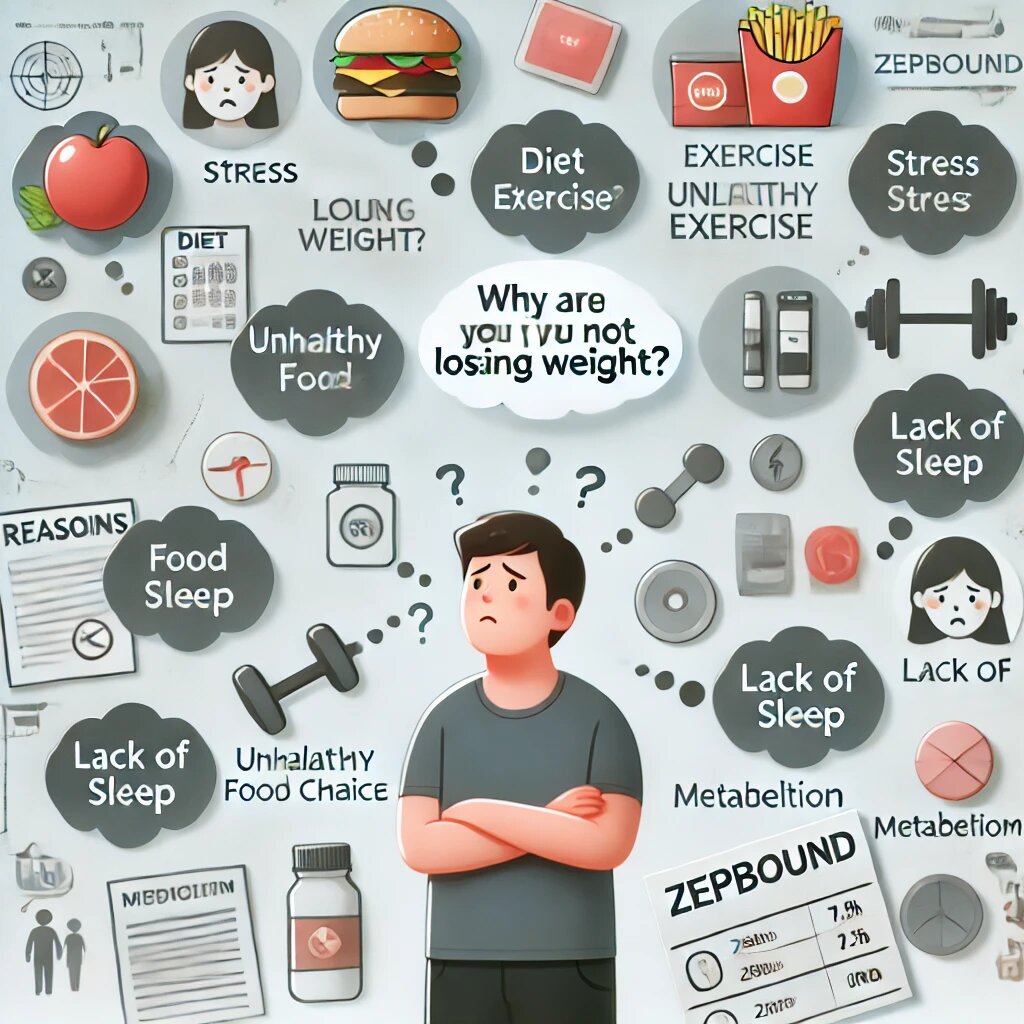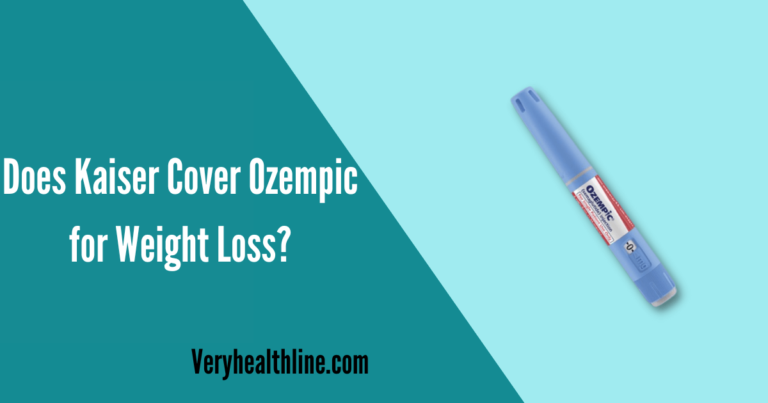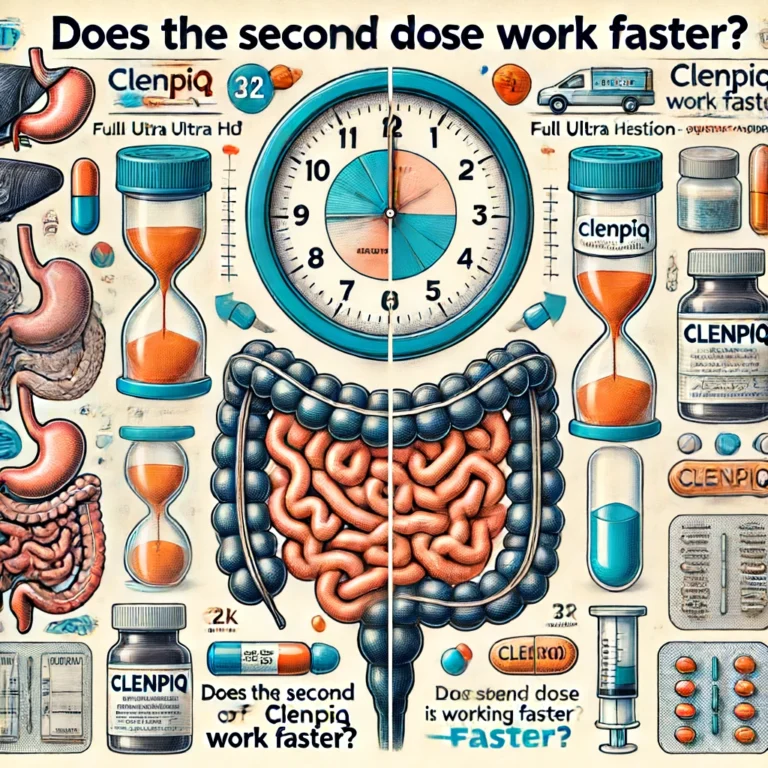Why Am I Not Losing Weight on Zepbound? 7 Main Reasons

Losing weight can be a tricky journey, especially when you’re using medications like Zepbound. Many people turn to weight loss drugs, expecting fast results, but find themselves frustrated when the numbers on the scale barely move. If you’ve been asking yourself, “Why am I not losing weight on Zepbound?” then you’re not alone.
There are several factors at play, and understanding them can help you achieve your weight loss goals faster. Let’s break it down and discuss the seven main reasons why Zepbound might not be delivering the results you expected.
What is Zepbound?
Zepbound is an injectable prescription medicine specifically designed for adults struggling with obesity or excess weight. It works by targeting weight-related medical problems, helping individuals lose weight and keep it off.
If you’re on Zepbound, you should pair it with a reduced-calorie diet and increased physical activity to maximize its benefits. The active ingredient, tirzepatide, is a GLP-1 receptor agonist, which makes it unique among medicines aimed at long-term weight management.
Zepbound helps regulate your appetite, making you feel full for an extended period, which means you’ll eat less. It’s a weekly injection that goes under your skin and should only be used alongside a proper diet and exercise plan. It’s also important to note that Zepbound may not be suitable for children, people with pancreatitis, or those using other over-the-counter or herbal weight loss products. As an FDA-approved option, it’s been shown to be both safe and effective for those who meet the medical criteria.
Common Used
One reason people may not see results with Zepbound is that it’s designed for long-term weight management, especially in adults who are obese or overweight with specific health conditions like high blood pressure, diabetes, or high cholesterol.
The key ingredient, tirzepatide, helps control appetite and hunger, making you feel full for longer periods and reducing your overall calorie intake.
However, for Zepbound to work effectively, it’s important to pair it with lifestyle changes. This means working with your healthcare provider to address weight-related concerns and monitor your progress.
Regular exercise, a balanced diet, and close attention to factors such as blood sugar, blood pressure, and cholesterol levels are crucial. Zepbound can also improve your overall metabolic health and support liver function, but the best results come when the medication is combined with active effort and careful health management.
Also Read: Can I Take Zepbound and Phentermine Together
How Does Zepbound Work?
The active ingredient in Zepbound is tirzepatide, which works by mimicking two key hormones: glucose-dependent insulinotropic polypeptide (GIP) and glucagon-like peptide-1 (GLP-1). These are part of a group of hormones called incretins that help your intestine and gut produce insulin after you eat. This process controls sugar levels in your body.
Zepbound also helps regulate your appetite by signaling your brain and slowing down how fast food passes through your stomach. This makes you feel full for longer, reducing your cravings and helping you manage your weight.
Similar to medications like Mounjaro, Ozempic, and Wegovy, which use semaglutide, Zepbound aims to suppress hunger and improve insulin sensitivity.
By helping with gastric emptying, Zepbound also supports digestion and lowers blood sugar levels. It works with your pancreas to release more insulin while reducing the amount of sugar your liver produces.
This complex interaction with the GIP and GLP-1 receptors is the unique mechanism of action that helps manage weight and improve overall health.
Side Effects of Zepbound
While Zepbound is effective for weight loss, it can also cause some side effects, ranging from mild to serious. The most common side effects include nausea, diarrhea, vomiting, and constipation.
Some people also experience stomach pain, abdominal discomfort, or indigestion. These issues might be linked to the way the drugs work in the body, affecting digestion and stomach processes.
If you notice injection site reactions like redness, itching, or swelling, it’s important to inform your doctor or pharmacist. Other potential symptoms could include tiredness, allergic reactions, belching, hair loss, or even heartburn.
Keep in mind that your dosage, medications, or other health conditions may influence how your body reacts during treatment. If any of these side effects persist or worsen, consult your healthcare provider to adjust your plan accordingly.
Common Misunderstandings About Weight Loss
Relying Too Much on Medication
One of the biggest misconceptions about weight loss medication like Zepbound is that it does all the work for you. While it helps curb cravings and manage your appetite, it doesn’t replace a balanced diet or physical activity.
If you’re relying solely on the medication without making lifestyle changes, that could explain why you’re not seeing the desired results.
Ignoring Lifestyle Changes
It’s essential to remember that Zepbound is not a standalone solution. Ignoring other key aspects like your diet, exercise routine, and stress management can severely hinder your weight loss efforts.

7 Main Reasons You are Not Losing Weight on Zepbound
Reason 1 – Not Following a Healthy Diet
If you’re not eating the right kinds of food, Zepbound alone won’t work wonders. Weight loss needs a calorie shortage, meaning you must glow more calories than you consume. However, this doesn’t mean starving yourself.
The Role of Nutritional Balance
Focus on nutrient-rich foods that provide vitamins, minerals, and healthy fats. Incorporating lean proteins, whole grains, vegetables, and fruits into your meals ensures that you’re nourishing your body while managing calories.
Reason 2 – Lack of Physical Activity
Weight loss and exercise go hand in hand. If you’re relying solely on Zepbound and not getting regular physical activity, you’re missing a huge piece of the puzzle.
Exercise: A Necessary Component
Even simple activities like walking, swimming, or yoga can make a significant difference. Aim for at least 150 minutes of moderate-intensity exercise per week to help shed those pounds.
Reason 3 – Not Drinking Enough Water
It might sound trivial, but hydration plays a crucial role in weight loss. Many people overlook the importance of drinking enough water daily, which can slow down your progress.
The Power of Hydration
Water helps flush toxins from your body and aids in digestion, which are both essential for effective weight loss. Aim for at least 8 glasses of water per day, and even more if you’re physically active.
Reason 4 – Unrealistic Expectations
Sometimes the reason for not seeing the results you want is simply that you’re expecting too much, too soon.
Setting Realistic Weight Loss Goals
Failing 1 to 2 pounds per week is a healthy and sustainable goal. Don’t be discouraged if the scale doesn’t show a dramatic drop in just a few weeks; consistency is key.
Reason 5 – Sleep Deprivation
Believe it or not, how much sleep you get directly impacts your weight loss efforts. When you’re not well-rested, your body produces more hunger hormones, making it harder to resist cravings.
How Sleep Impacts Weight Loss
Aim for at least 7 to 9 hours of rest per night. Not only will you feel better, but you’ll also help your body regulate its metabolism more effectively.
Reason 6 – Medical Conditions
Certain medical conditions, such as thyroid disorders, can make weight loss difficult, even with the help of medications like Zepbound.
Thyroid and Metabolic Disorders
If you have a condition that affects your metabolism, it’s essential to consult with your doctor. They may need to adjust your treatment plan to ensure you’re on the right path.
Reason 7 – Stress and Emotional Eating
Anxiety can wreak devastation on your weight loss journey. When we are stressed, many of us turn to food for comfort, which can quickly lead to overeating.
How Stress Affects Your Body
High stress levels trigger the release of cortisol, a hormone that can lead to weight gain, especially in the abdominal area. Managing stress through techniques like meditation or exercise can help keep your weight loss on track.
How to Maximize Weight Loss on Zepbound
Adopting a Holistic Approach
For the best results, combine Zepbound with a well-rounded approach to health.This includes maintaining a balanced diet, remaining active, adequately sleeping, and managing stress.
Consulting with Your Doctor
If you feel like you’ve hit a plateau or aren’t losing weight despite your best efforts, it’s important to talk to your healthcare provider. They may adjust your medication or suggest other strategies to help you succeed.
Conclusion
Losing weight on Zepbound might take a little more effort than just taking a pill. Remember, weight loss is about more than just medication; it’s about creating a healthy, balanced lifestyle. If you’re struggling, reflect on the points we’ve discussed. With the right approach and mindset, your weight loss journey can still be successful.
FAQs:
Is Zepbound enough on its own to lose weight?
No, Zepbound is most effective when combined with a healthy diet, exercise, and proper hydration.
How long does it take to see results with Zepbound?
Most people begin to notice changes after a few weeks, but weight loss varies depending on individual factors like diet and activity levels.
What should I eat while on Zepbound?
Focus on whole foods like lean proteins, vegetables, and whole grains. Avoid highly processed, sugary foods.
Can I stop exercising if I’m on Zepbound?
Exercise is crucial for effective weight loss, even when using Zepbound. Aim for regular physical activity to maximize results.
Are there side effects of using Zepbound for weight loss?
Yes, like any medication, Zepbound can have side effects. It’s essential to discuss these with your doctor before starting treatment.
Resources
- https://zepbound.lilly.com/
- https://www.fda.gov/news-events/press-announcements/fda-approves-new-medication-chronic-weight-management





